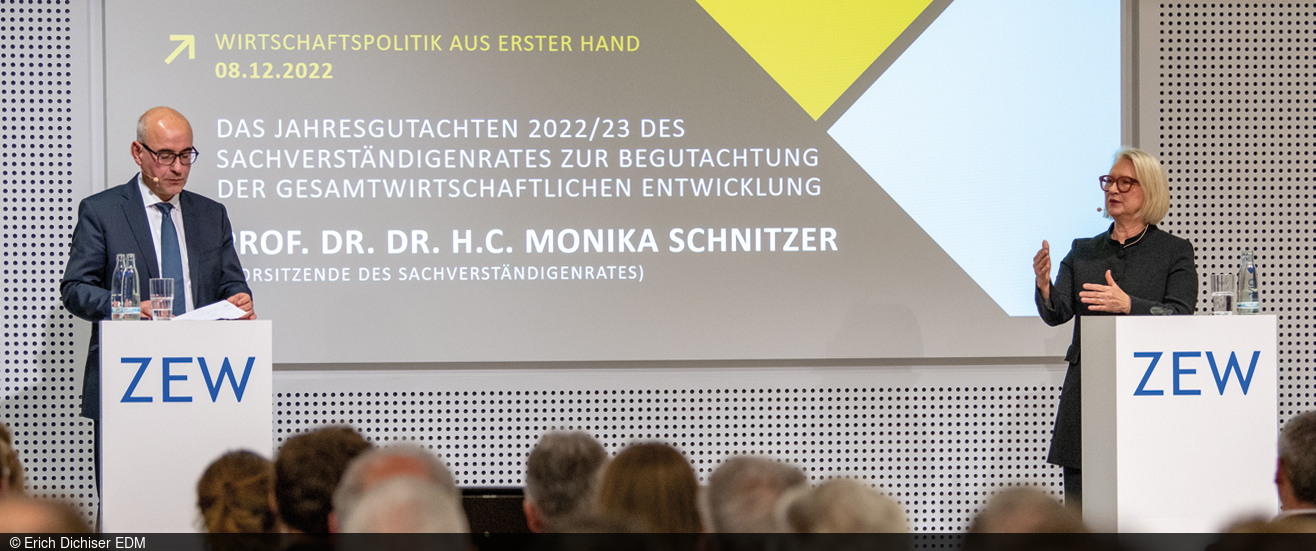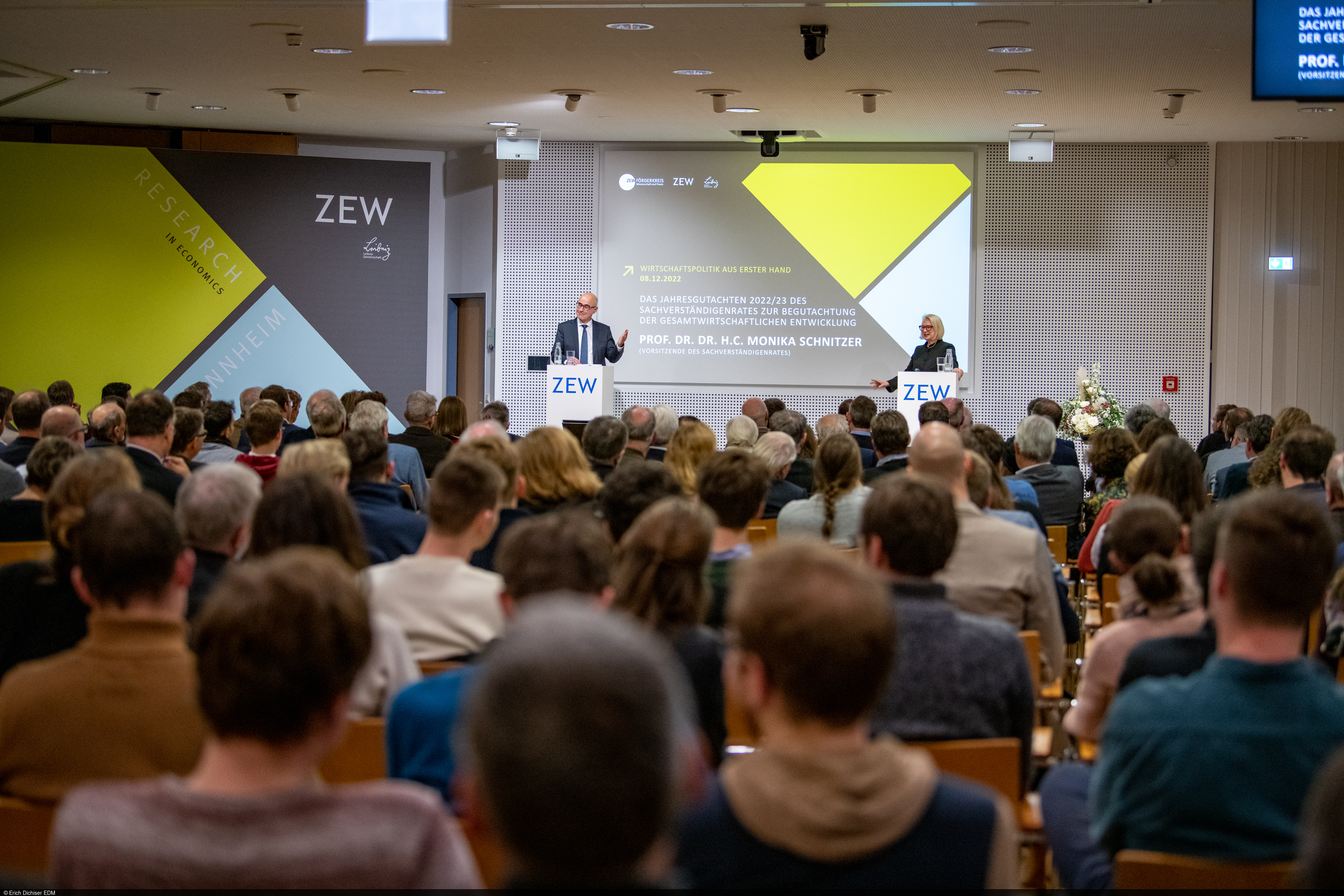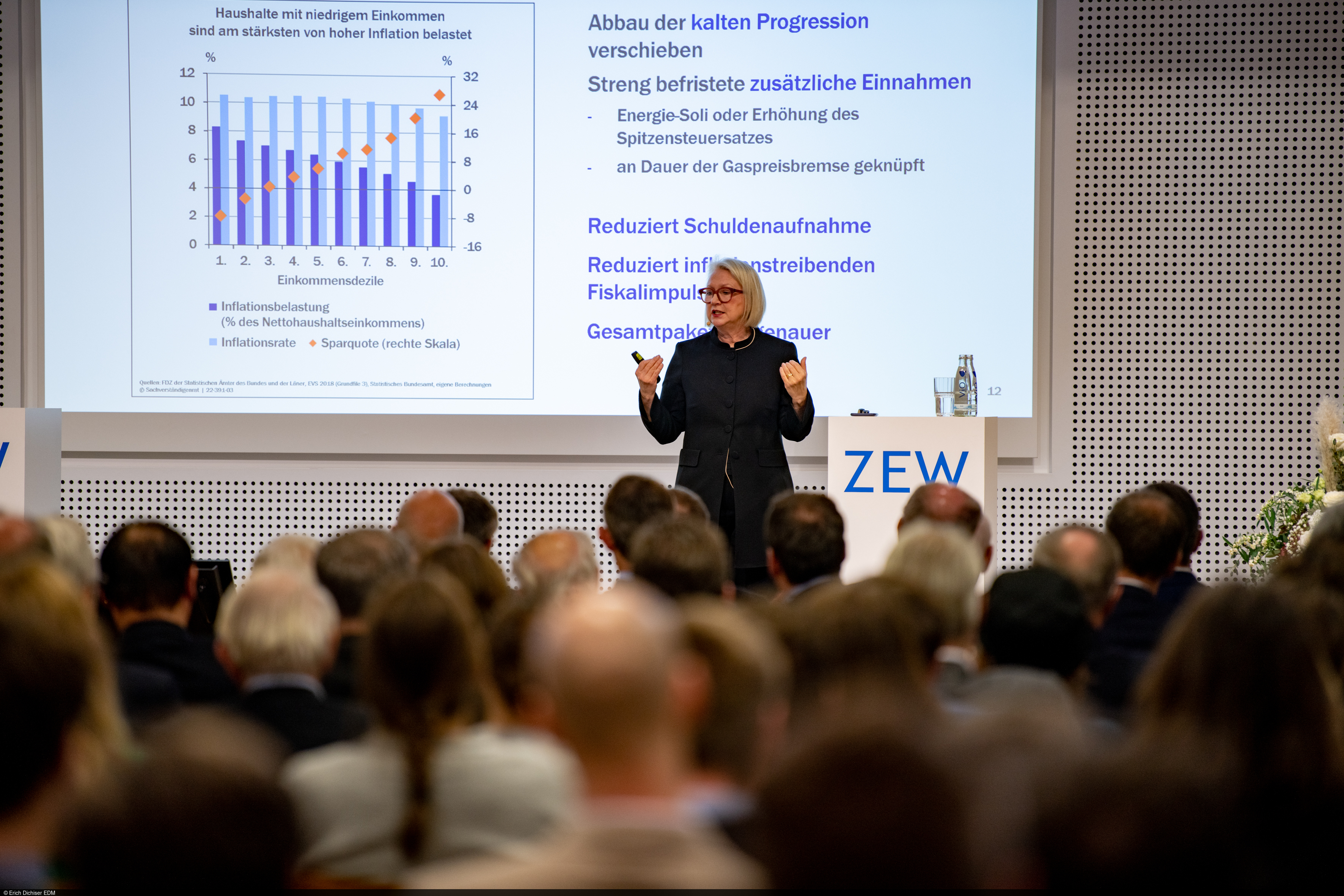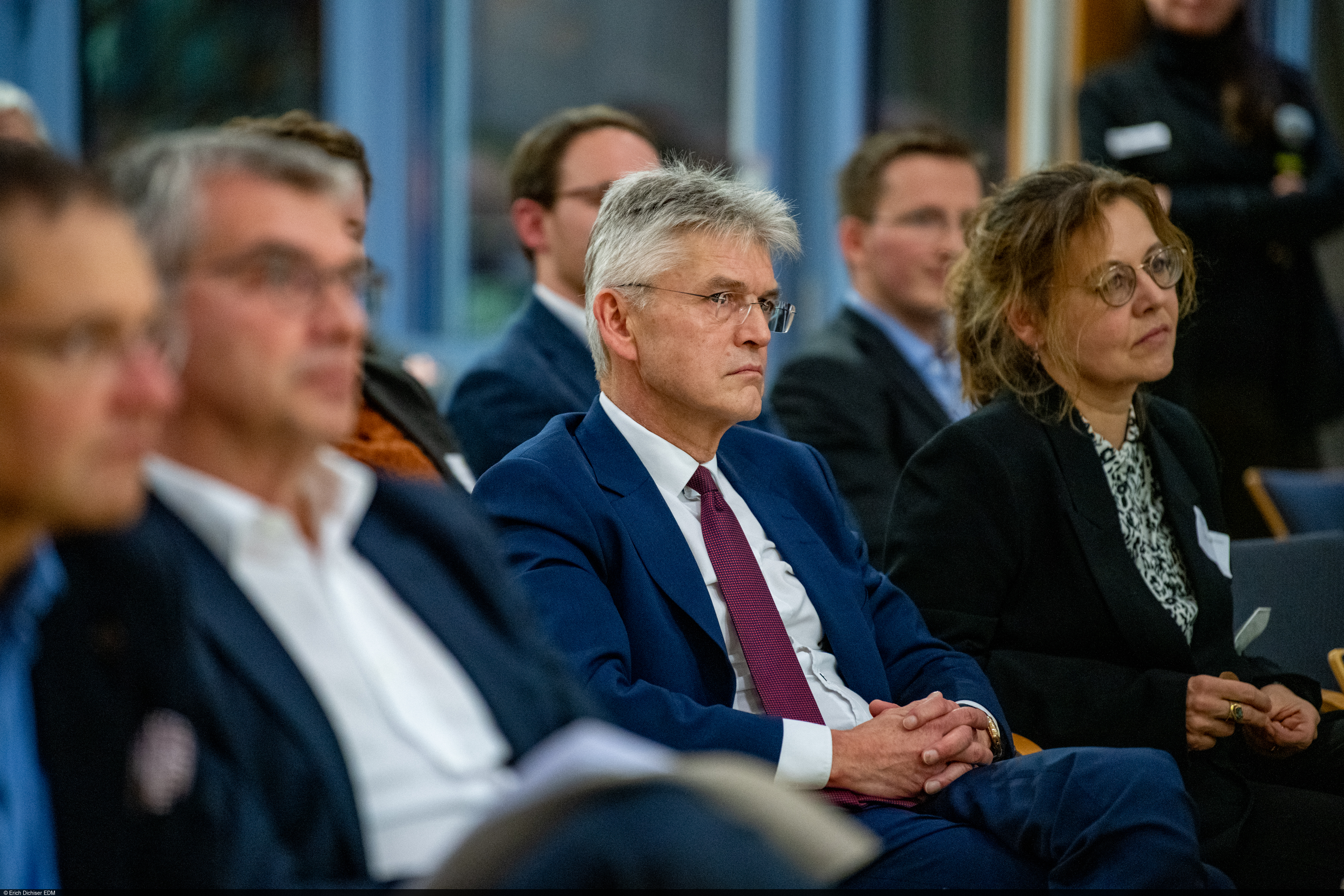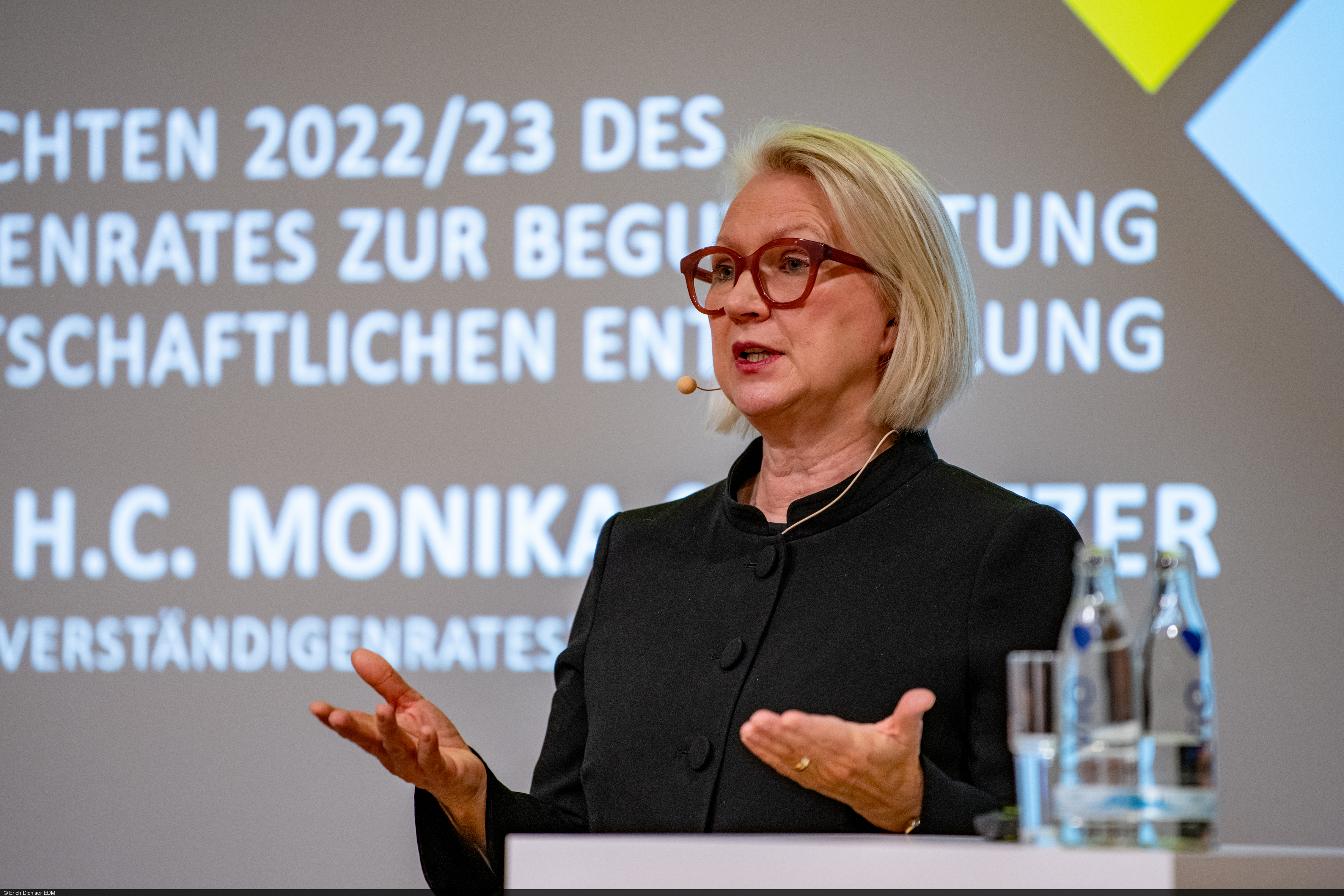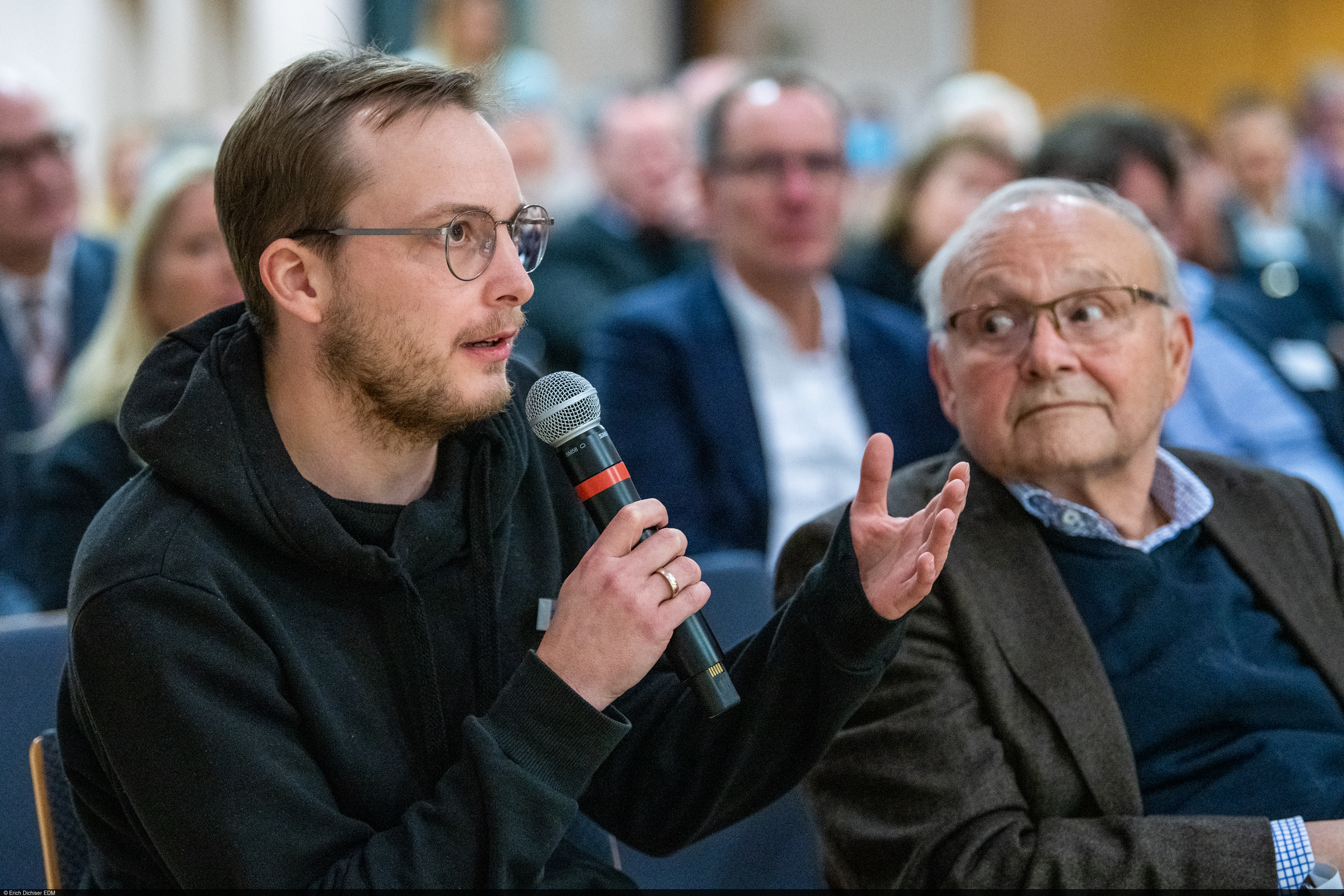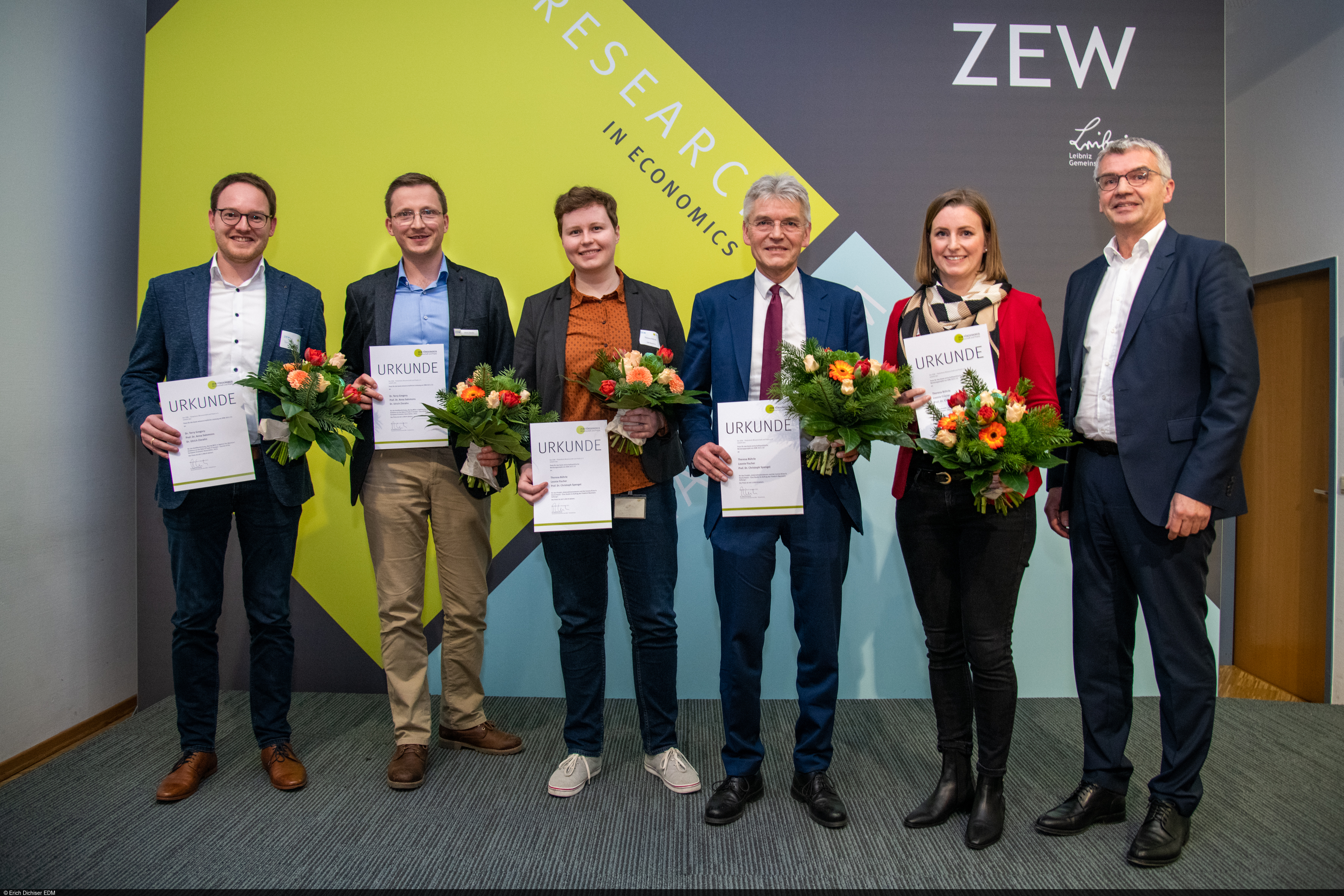“We Are Fighting a Losing Battle If We Only Think Nationally”
Public EventsAnnual Report 2022/23 of the German Council of Economic Experts
Businesses are fighting with increased costs of production. Households are faced with rising prices for consumer goods. And these are by no means the only challenges for the economy and society. This year’s annual report of the German Council of Economic Experts identifies the most pressing economic policy issues and names the goals and measures needed to overcome them. Professor Monika Schnitzer, chairwoman of the council, gave an in-depth insight into the report followed by a lively exchange with ZEW President Professor Achim Wambach on 8 December 2022, as part of the ZEW event series “First-Hand Information on Economic Policy” in Mannheim.
“The outlook is bleak,” stated economist Schnitzer at the start of her talk. The economic outlook for Germany and Europe has deteriorated noticeably in comparison to spring 2022. She named the ongoing pandemic-induced global supply chain disruptions as one cause. Critical, however, has been the energy crisis, which has arisen in the wake of the Russian invasion of Ukraine. This is why, according to Schnitzer, the report is also heavily affected by this crisis.
Managing this, along with fighting inflation, is one of the central challenges not only in economic policy, but also for social justice. According to Schnitzer, poorer households already designate a much larger proportion of their income just for the most basic living costs. In light of rising energy prices, they now have to “spend almost everything”, saving is hardly or not at all possible anymore. Therefore, the government should provide targeted relief where the burden of inflation is greatest. The problem: There is not currently such a precise instrument. However, a comprehensive package, including a temporary increase in the top tax rate or an energy solidarity surcharge, could provide some relief.
Structural change in industry and securing skilled workers
In industry, too, there is a need for action. On the one hand, Germany and the EU must overcome their dependence on Russian energy imports. On the other hand, further support for the planned transformation towards climate neutrality should be promoted. The quicker development of renewables and the diversification of energy sources were only two of the measures named in this context.
The issue of securing skilled workers also shows that it is necessary to think in the long term. In recent years, migration of labour has contributed significantly to covering German labour demand. Yet “in the future it will no longer be possible for EU states to manage this,” concludes economist Schnitzer, in light of the ageing population that can be observed across Europe. It is therefore particularly important to start with the main immigration hurdle for job seekers, namely the proof of equivalence for foreign professional qualifications. The Western Balkan Regulation, which allows certain people who already have a job confirmation to enter the country without first checking their qualifications, could serve as an example here.
“As autonomous as necessary, as open as possible”
Last but not least, Schnitzler raised the question of how the reduction of economic dependency – another cornerstone of the report – could be managed. “It’s a matter of forming strategic alliances,” said the economic expert. In particular in the procurement of critical raw materials, which until now have mostly come from China, Germany has to diversify its trading partners, she said.
In the subsequent discussion with ZEW President Professor Achim Wambach, Schnitzer also stressed the need to create such global economic awareness, e.g. on the topic of de-industrialisation. After all, for German businesses the problem is not just of their own energy costs, but also a question of the production costs of their competitors outside of Europe. Those who can’t raise their prices further for reasons of competition will probably have to relocate production. It is critical therefore to concentrate manufacturing on those products where a profit margin is actually still attainable.
The subsequent award ceremony struck a more positive note. The ZEW Sponsors’ Association honoured Dr. Terry Gregory and Assistant Professor Ulrich Zierahn with this year’s prize for the best research performance. Theresa Bührle, Leonie Fischer and Professor Christoph Spengel received the award for the best economic policy advisory project.
